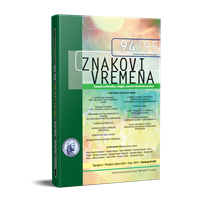Sloboda kao ideal islama?
Freedom as the ideal of Islam?
Author(s): Samedin KadićSubject(s): Philosophy of Religion, History of Islam, Contemporary Islamic Thought, Sociology of Religion
Published by: Naučnoistraživački institut »Ibn Sina«
Keywords: Freedom; slavery; types of freedom; classical Islam; Muslim modernism;
Summary/Abstract: This paper provides an overview of different understandings of the concept of freedom in classical and contemporary Islam. In classical Islam dominates dichotomy of legal and moral freedom. In the first case, freedom is defined as the opposite of (legal) slavery, and in the second, as freedom from desires and worldly interests. In Muslim modernity, freedom implies mostly negative freedom: freedom from the colonial boot, and later from various local despots. In Islam, as in other monotheistic traditions, the concept of freedom is understood as “the submission of the individual to divine law and order.” This is a characteristic monotheistic “paradox of freedom”: only those who obey God are free. Hence, “the Islamic concept of freedom differs from the Western concept, both in terms of assumptions and content.”
Journal: Znakovi vremena - Časopis za filozofiju, religiju, znanost i društvenu praksu
- Issue Year: XXVI/2023
- Issue No: 94/95
- Page Range: 109-126
- Page Count: 18
- Language: Bosnian

